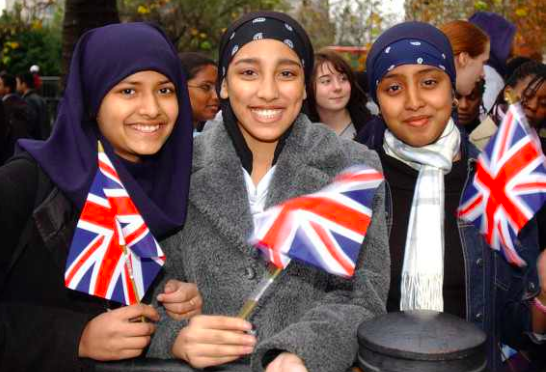Do you have sympathy with young Muslims who leave the UK to join fighters in Syria? It’s a hard question to answer: perhaps you’d wonder who the ‘fighters’ were. Or whether the ‘young Muslims’ were 14-year-old girls, groomed by fanatics to be jihadi brides. But if you answer ‘yes’, you may be surprised to find yourself described as having ‘sympathy for jihadis’. Such are the perils awaiting British Muslims who respond to opinion poll questions.
The Sun this week found itself in a row about a front-page headline: 1 IN 5 BRIT MUSLIMS’ SYMPATHY FOR JIHADIS. The poll, by Survation, had asked a rather different question: what level of ‘sympathy’ the respondents had ‘with young Muslims who leave the UK to join fighters in Syria’. A small proportion — 5 per cent — had ‘a lot of sympathy’, and 15 per cent had ‘some sympathy’. But sympathy lay with the young Brits, not the Isis jihadis — and there is a difference.
It’s the latest of many polls since 9/11 which ask Muslims if they have sympathy for the devil. Typically, these polls declare that a significant minority does. Even if just 5 per cent are found to entertain crazy ideas, it’s then argued, that amounts to 130,000 people. But what is seldom asked is: what about the non-Muslims? Given that you’ll find a significant minority agreeing with any crazy proposition — Elvis still being alive, light sabers being real — how much weight should we attach to the polls which purport to identify embryonic British jihadism?
In fact, Survation put exactly the same question to non-Muslims in March — and found that one in six had ‘sympathy’ with young Brits going to join fighters in Syria. Not very different from the Muslims. But what about political affiliation?
This week, The Spectator asked YouGov to put the same question to its regular polling panel. They found that 10 per cent had ‘sympathy’, but this rose to 17 per cent among Liberal Democrat voters. Proof, if any were needed, of the danger created by the last election, which turfed so many Lib Dem MPs out of parliament and out on to the streets.
Shortly after the Charlie Hebdo attacks, the Today programme asked Muslim residents in High Wycombe whether they thought the magazine should have published its cartoons of the Prophet Mohammed. Some said no. Others questioned the morality of printing such pictures, given the potential for offence. I live in the town and I know plenty of people who hold the latter view, but the Today programme would never have approached them, because they weren’t Muslim. Even if Muslims and non-Muslims have similar views on the limits of freedom of speech, it’s apparently worth checking with only one group.
Not so very long ago, Muslims were being left alone and Catholics were being asked whether they had sympathy with IRA attacks. Even in day-to-day politics, those with religious convictions are always interrogated about whether their faith clouds their judgment, while those with secular stances whose judgment may prove equally unsound are left alone. Tim Farron had to endure a painful session on the radio about how his praying to God affects how he votes. Yet broadcasters never delved into what led his atheist predecessor Nick Clegg to back certain policies.
We all have a world view — whether it is religious, relativist or unclassifiable. And though everyone’s world view is a funny jumble of assumptions and personal experiences, only a few groups are singled out for scrutiny. Are you an anti-abortion atheist? Or someone who voted Labour all their life simply because their parents did? Is one person’s world view automatically exempt from scrutiny, while another’s should always be viewed with suspicion, just because part of it involves going to a mosque?
Britain clearly does have a problem with homegrown extremism, and it’s important to gauge the extent of that problem. But any poll which puts questions to Muslims is useful only if it is set alongside a comparison poll which puts the same questions to non-Muslims. If you torture the data for long enough, you can show anything. Any poll of any group in Britain will always find a small minority supporting the bizarre or the deplorable — that doesn’t make the whole group gullible, or crazy. And it certainly doesn’t mean that the average British Muslim harbours any sympathy for the Islamic State.







Comments